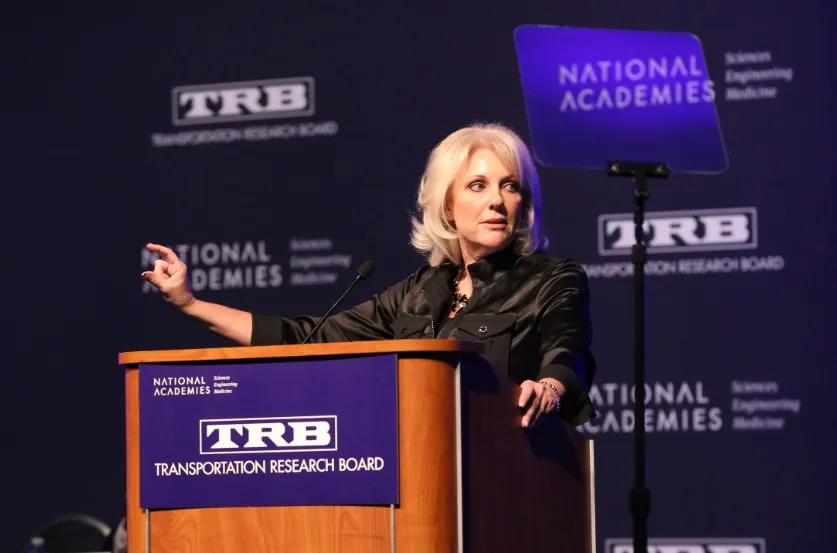
A rallying call to transport leaders to consider the implications of new technology closed the Transportation Research Board Annual Meeting 2023 in Washington, DC.
In her keynote speech, National Transportation Safety Board chair Jennifer Homendy said: “We’re fighting for the 43,000 people who die on our roads annually…and the millions more who are injured — not just drivers, but all road users," Homendy said.
“No matter their race, ethnicity, ability, income, or where they live. No matter whether they’re walking, biking, rolling, or driving. That is who the NTSB is fighting for; who we’re all fighting for.”
She appealed to delegates to work harder to prevent road deaths.
“We need your research to inform new policies, new systems, new regulations, new laws — especially when we have so much advancement in new technology," Homendy said.
“But we also need something else — something less tangible. We need to be fearless: unafraid to open our hearts to the preventable pain of transportation disasters and to fearlessly pursue solutions.”
Homendy also questioned the safety impact of electric vehicles on US roads. “I’m concerned about the increased risk of severe injury and death for all road users from heavier kerb weights and increasing size, power, and performance of vehicles on our roads, including EVs,” Homendy said.
“A GMC Hummer EV weighs over 9,000 pounds, up from about 6,000 pounds. Its gross vehicle weight rating is a staggering 10,550 pounds. The battery pack alone weighs over 2,900 pounds — about the weight of a Honda Civic. The Ford F-150 Lightning is between 2,000 and 3,000 pounds heavier than the non-electric version. The Mustang Mach-E, Volvo XC40 EV, and RAV4 EV are all roughly 33% heavier. That has a significant impact on safety for all road users.”
Homendy insisted that she was in favour of reducing emissions. “Now I want to be clear: I am inspired by the Administration’s commitment to phasing out carbon emissions,” she emphasised. “We do have a climate crisis that needs to be addressed. The US transportation sector accounts for the largest portion of US greenhouse gas emissions, and I firmly believe it is a human right to breathe clean air. But we have to be careful that we aren’t also creating unintended consequences: more death on our roads.”
Also at TRB 2023, in what was billed as a fireside chat, two US secretaries - Pete Buttigieg (transportation) and Jennifer M. Granholm (energy) - discussed the decarbonisation of transport, with emphasis on their work in the Joint Office on Energy and Transportation. This was created through the Bipartisan Infrastructure Law to enhance cooperation between their department, in particular around such issues as the roll-out of electric vehicle charging infrastructure and zero-emission transit and school buses.









